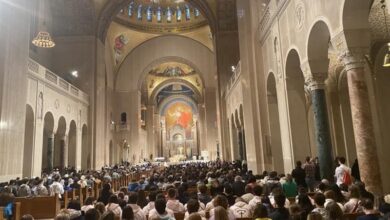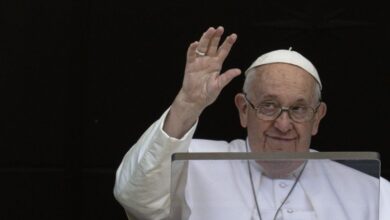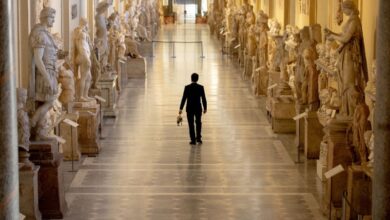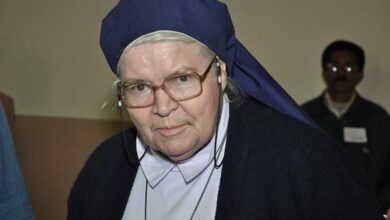Meet the modern-day ‘devil’s advocate’ in the process of canonization

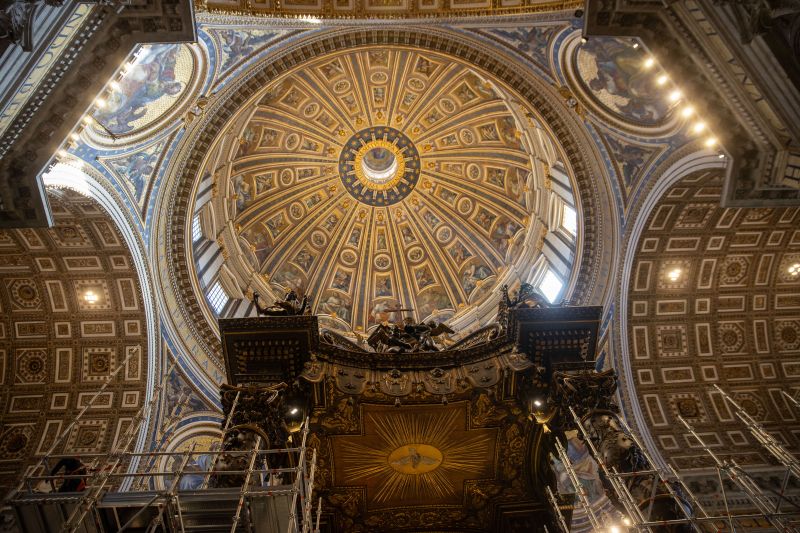 A view of the baldacchino underneath the central dome of St. Peter's Basilica. / Credit: Daniel Ibanez/CNA
A view of the baldacchino underneath the central dome of St. Peter's Basilica. / Credit: Daniel Ibanez/CNA ACI Prensa Staff, May 26, 2024 / 07:00 am (CNA).
Monsignor Alberto Royo Mejía is the promoter of the faith in the Dicastery for the Causes of Saints. His current function is, in fact, the same one that was formerly performed by the so-called “devil’s advocate” in the canonization processes.
When and why was this name changed? Who exactly is, in effect, the “devil’s advocate”?
ACI Prensa, CNA’s Spanish-language news partner, was able to speak in Rome with Royo, who holds a doctorate in canon law and is a priest of the Diocese of Getafe in Spain, where he has been judicial vicar, episcopal delegate for the causes of saints, and pastor of Our Lady of the Assumption Parish in the town of Parla, south of Madrid.
Origin of the term
Royo explained to ACI Prensa that the name “devil’s advocate” is actually a popular designation, since Sixtus V did not establish this function using this term but rather “he was called that because he had to be the ‘bad guy in the movie,’ after all.” The role of the “devil’s advocate,” now the promoter of the faith, is to prepare in writing all possible arguments against the canonization of the individual.
“In a civil or criminal proceedings it would be what we more or less know as the prosecutor: the one who has to search for the truth in a special way, because here the only thing we are looking for is the truth, as in every proceeding, as in every investigation,” he emphasized.
The Spanish priest thus defined the canonization processes as “an investigation” whose objective is “to discern the will of God about a candidate for the altars.”
The priest explained that in this discernment “it’s essential that someone help search for the truth, because sometimes due to excessive affection, devotion, distraction, or other types of reasons, the [candidate] can be presented in an inappropriate way, because research or historical documentation are missing.” And it’s because “all people have defects; there is no saint who does not have any defects.”
For these “defects” to come to light and be investigated, the “promoter of the faith,” the ancient “devil’s advocate” whose figure “emerged when Sixtus V established the Roman Curia,” is indispensable, he said.
However, the Spanish priest said that “today he is no longer called ‘devil’s advocate’ but rather the ‘prelate theologian.’ He continues to call himself a promoter of the faith, but the popular designation is no longer that of devil’s advocate — although the idea is the same.”
Evolution of the canonization process
In 1984, Pope John Paul II introduced a series of reforms to facilitate the canonization process and bring the system more in line with modern times.
According to the promoter of the faith, this was done “by a natural evolution of the process,” since, over the centuries, “the process had become increasingly legal and, nonetheless, the need was seen to also make it historic, since it was very similar to what the marriage annulment process or any process in the Church was like.”
“In fact,” he noted, “for centuries the work that the relators do today [which is a new figure that John Paul II established], was done by the auditors of the Rota, with which, between a process of canonization and a process of the Roman Rota [a tribunal] there was very little difference.”
Royo further explained that with the development of historical sciences, the need was seen to delve into the historical context of the causes.
“The development of psychological sciences also had a lot of influence. The psychology of a servant of God, of a candidate for the altars, influences the person… all of this was not taken into account before,” the priest explained.
For this reason, “a series of figures came into play who are today, for example, the relators,” he said.
“The relator is an intermediate figure between the diocesan phase, the material that arrives in Rome and the study done by the promoter of the faith.”
“The very valuable work of the relators is to prepare the cause,” he continued. “They already see the difficulties, the problems, and what must also be highlighted in each servant of God.”
According to Royo, the relators “systematize the work and, when it reaches the promoter of the faith, and therefore the theological consultants, the cause is already very refined and very prepared.”
“This has greatly expedited the causes,” he pointed out, since without this figure the process “was like a very tight funnel” in which the causes “were stuck … because only the promoter of the faith was in charge of studying them all.”
This story was first published by ACI Prensa, CNA’s Spanish-language news partner. It has been translated and adapted by CNA.


